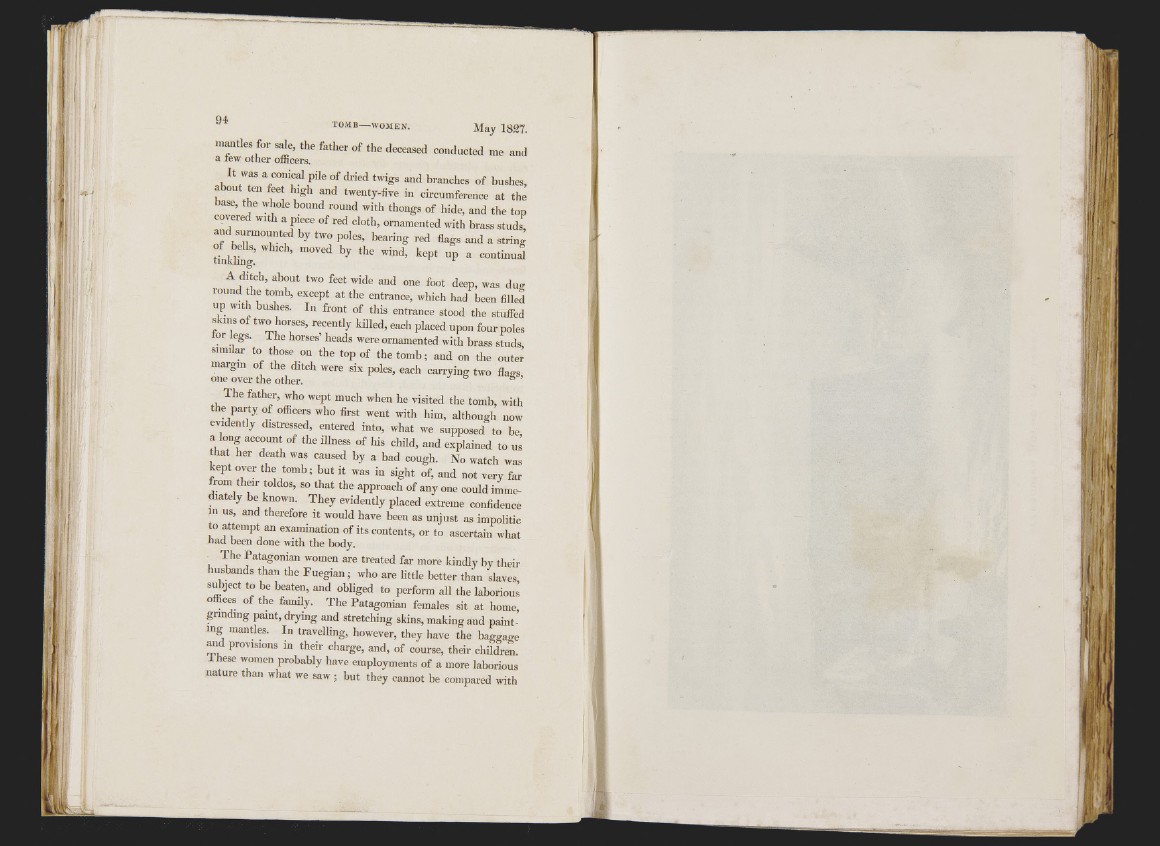
:\\ •
il I 94 TOMB WOMEN. May 1827.
mantles for sale, the father of the deceased conducted me and
a few other officers.
It was a conical pile of di-ied twigs and branches of bushes,
about ten feet high and twenty-five in circumference at the
base, the whole bound round with thongs of hide, and the top
toveie wit 1 a piece of red cloth, ornamented with brass studs,
and surmounted by two poles, bearing red flags and a string
t i n k S ’ "P
A ditch, about two feet wide and one foot deep, was du<r
round the tomb, except at the entrance, which had been filled
up with bushes. In front of this entrance stood the stuffed
skins of two horses, recently killed, each placed upon four poles
for legs. The horses’ heads were ornamented with brass studs,
similm- to those on the top of the tomb; and on the outer
margin of the ditch were six poles, each carrying two flao-s,
one over the other.
The father, who wept much when he visited the tomb, with
the party of officers who first went with him, although now
evidently distressed, entered into, what we supposed to be
a long account of the illness of his child, and explained to
that her death was caused by a bad cough. No watch was
kept over the tomb; but it was in sight of, and not very far
rom their toldos, so that the approach of any one could immediately
be known. They evidently placed extreme confidence
in us, and therefore it would have been as unjust as impolitic
to attempt an examination of its contents, or to ascertain what
had been done with the body.
The Patagonian women are treated far more kindly by their
husbands than the Fuegian; who are little better t h 4 slaves
subject to be beaten, and obliged to perform all the laboriou.s
offices of the family. The Patagonian females sit at home,
p-inding paint, drying and stretching skins, making and painting
mandes. In travelhng, however, they have the baggage
Mid provisions in their charge, and, of course, their children.
These women probably have employments of a more laborious
nature than what we saw ; but they cannot be compared with